Creating a freezer trailer involves a meticulous blend of engineering precision, quality materials, and innovative design. At CarMax Vehicle, we understand the intricacies of manufacturing top-tier freezer trailers that meet diverse transportation needs. This guide delves into the step-by-step process of constructing a freezer trailer, ensuring optimal performance, durability, and efficiency.
Understanding the Fundamentals of Freezer Trailers
Before embarking on the manufacturing journey, it’s essential to grasp the core components and functionalities of a freezer trailer. These specialized trailers are designed to transport perishable goods at controlled temperatures, maintaining product integrity from origin to destination.
Key Components of a Freezer Trailer
- Chassis and Frame: The backbone of the trailer, providing structural support.
- Insulation: High-quality insulation materials to maintain internal temperatures.
- Refrigeration Unit: The heart of the freezer trailer, responsible for cooling.
- Electrical Systems: Wiring and controls for temperature regulation.
- Doors and Seals: Efficient sealing mechanisms to prevent temperature loss.
- Flooring: Durable and easy-to-clean surfaces to maintain hygiene standards.

Step-by-Step Guide to Manufacturing a Freezer Trailer
1. Designing the Chassis and Frame
The chassis serves as the foundation of the freezer trailer. It must be robust enough to support the weight of the cargo and withstand the stresses of transportation.
- Material Selection: Typically, high-tensile steel or aluminum alloys are used for their strength-to-weight ratio.
- Frame Construction: Precision welding techniques ensure structural integrity and longevity.
- Suspension System: Advanced suspension systems enhance ride quality and cargo stability.
2. Selecting and Installing Insulation
Insulation is critical for maintaining the desired temperature within the trailer.
- Types of Insulation:
- Polyurethane Foam: Offers excellent thermal resistance and lightweight properties.
- Spray Foam Insulation: Provides seamless coverage, eliminating gaps.
- Installation Techniques: Proper sealing around joints and seams is essential to prevent thermal bridging.
| Insulation Type | Thermal Resistance (R-Value) | Cost Efficiency | Durability |
|---|---|---|---|
| Polyurethane Foam | R-6 per inch | Moderate | High |
| Spray Foam Insulation | R-7 per inch | Higher | Very High |
| Fiberglass Insulation | R-3 per inch | Low | Moderate |
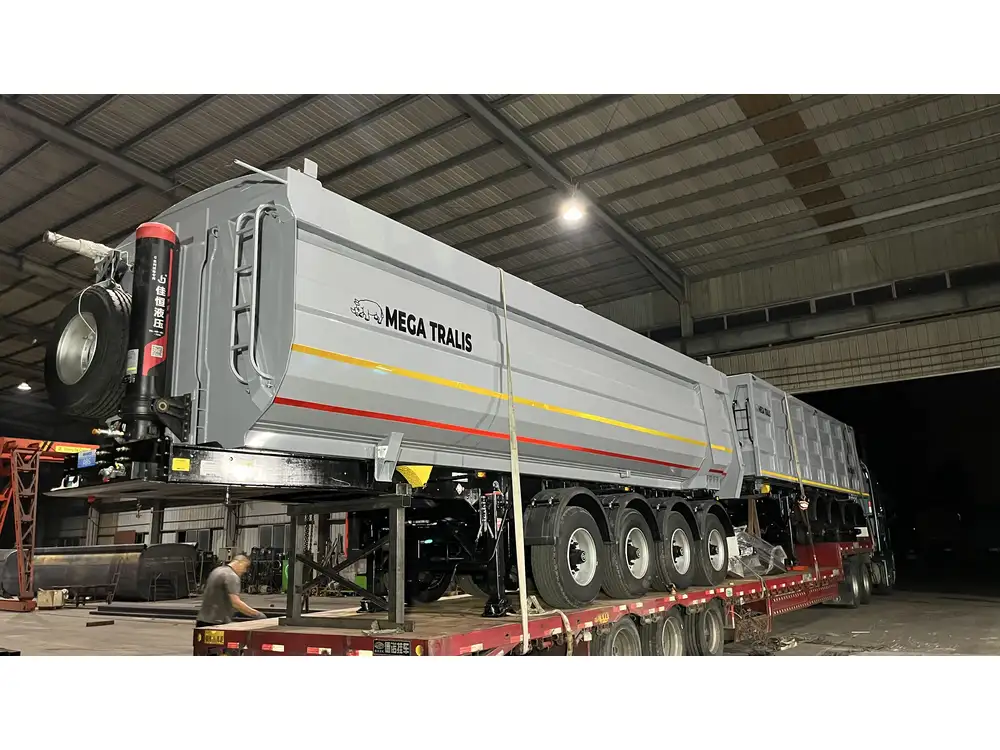
3. Integrating the Refrigeration Unit
The refrigeration system is paramount in maintaining consistent temperatures.
- Types of Refrigeration Units:
- Electric Refrigerators: Suitable for environments with reliable power sources.
- Diesel-Powered Units: Ideal for long-haul transportation where power access is limited.
- Capacity Planning: Calculating the required cooling capacity based on trailer size and intended cargo.
- Installation Best Practices:
- Proper Ventilation: Ensures efficient heat dissipation from the refrigeration unit.
- Secure Mounting: Prevents movement during transit, reducing wear and tear.
4. Wiring and Electrical Systems Setup
Efficient electrical systems are necessary for precise temperature control and monitoring.
- Wiring Standards: Adhering to industry standards ensures safety and functionality.
- Control Systems: Advanced digital controllers offer real-time temperature monitoring and adjustments.
- Backup Power Solutions: Incorporating backup batteries to maintain refrigeration during power outages.
5. Crafting Doors and Seals
The doors and seals are critical barriers against temperature fluctuations.
- Door Design:
- Swing Doors vs. Roll-Up Doors: Selecting based on operational needs and space constraints.
- Reinforced Frames: Enhance durability and resistance to impact.
- Seal Materials:
- Rubber Gaskets: Provide effective sealing with flexibility.
- Magnetic Seals: Ensure airtight closure for optimal temperature retention.
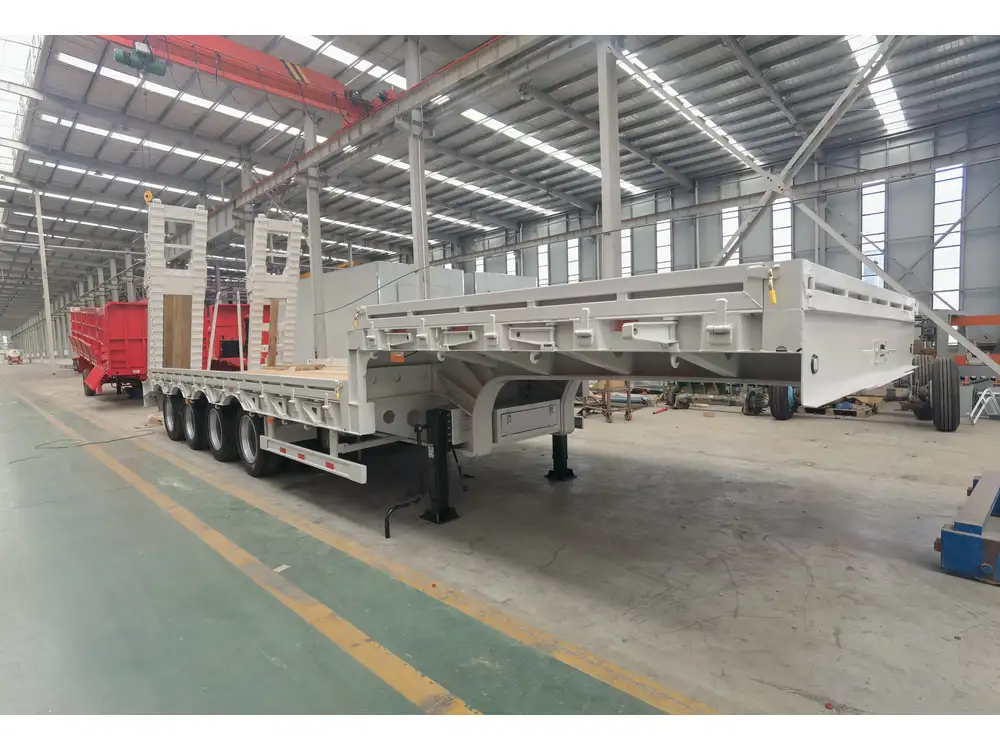
6. Flooring Installation
A resilient and hygienic flooring system is essential for freezing operations.
- Material Choices:
- Stainless Steel: Offers excellent durability and ease of cleaning.
- Epoxy-Coated Floors: Resistant to moisture and chemical spills.
- Floor Design:
- Sloped Flooring: Facilitates drainage and prevents water accumulation.
- Non-Slip Surfaces: Enhance safety during loading and unloading.
Advanced Features for Enhanced Freezer Trailers
To stay competitive, integrating advanced features can significantly enhance the functionality and appeal of freezer trailers.
Smart Temperature Monitoring Systems
Incorporating IoT-enabled sensors allows for real-time tracking of internal temperatures, ensuring cargo safety and compliance with regulations.

Energy-Efficient Refrigeration Technologies
Adopting energy-efficient compressors and insulation materials reduces operational costs and minimizes environmental impact.
Modular Design Elements
A modular approach enables easy customization and scalability, catering to varying client requirements without extensive redesigns.
Enhanced Aerodynamics
Optimizing the trailer’s exterior design reduces drag, improving fuel efficiency and overall performance.
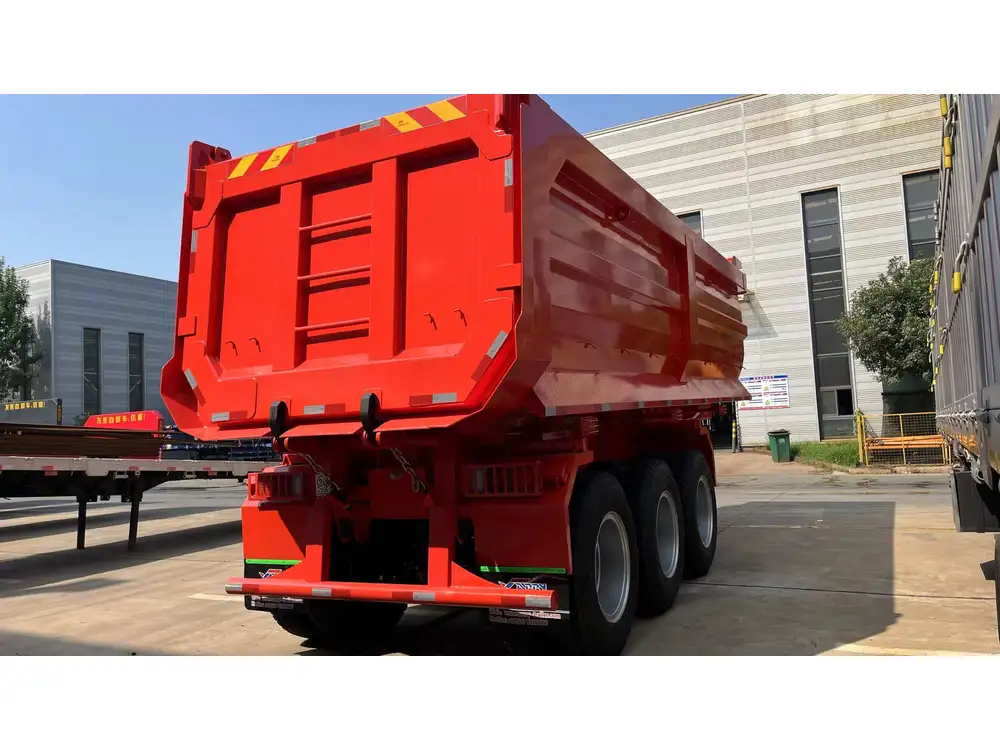
Quality Assurance and Testing
Ensuring the reliability and performance of freezer trailers involves rigorous quality assurance processes.
Inspection Protocols
- Structural Integrity Tests: Verifying the strength and stability of the chassis and frame.
- Insulation Efficacy: Assessing thermal resistance and identifying potential leakage points.
- Refrigeration Performance: Testing cooling capacity and consistency across different temperature ranges.
Compliance with Standards
Adhering to industry standards and regulations ensures that the freezer trailers meet safety and operational benchmarks.
- ISO Certifications: Demonstrates commitment to quality management and continuous improvement.
- ADR Regulations: Compliance with European Agreement concerning the International Carriage of Dangerous Goods by Road for transport safety.
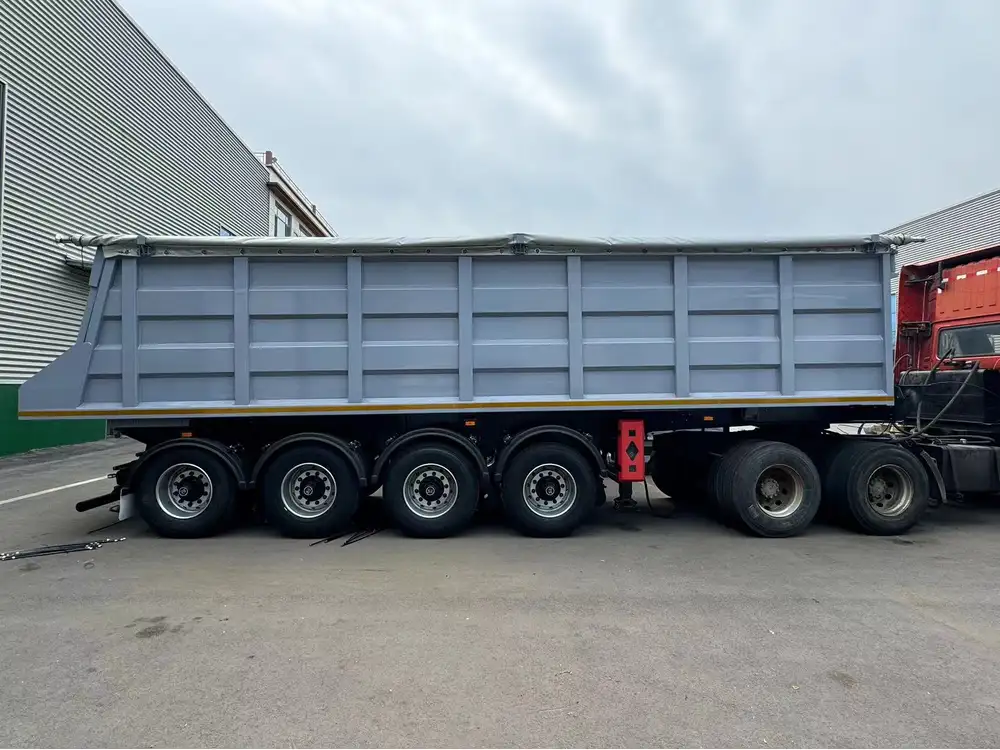
Customization Options for Diverse Needs
At CarMax Trailer, we recognize that each client’s requirements are unique. Offering customization options enhances the versatility and usability of our freezer trailers.
Size and Capacity Variations
Providing a range of trailer sizes accommodates different cargo volumes, from small-scale distributions to large-scale logistical operations.
Specialized Compartments
Incorporating multiple compartments allows for the segregation of different product types, preventing cross-contamination and maintaining optimal storage conditions.
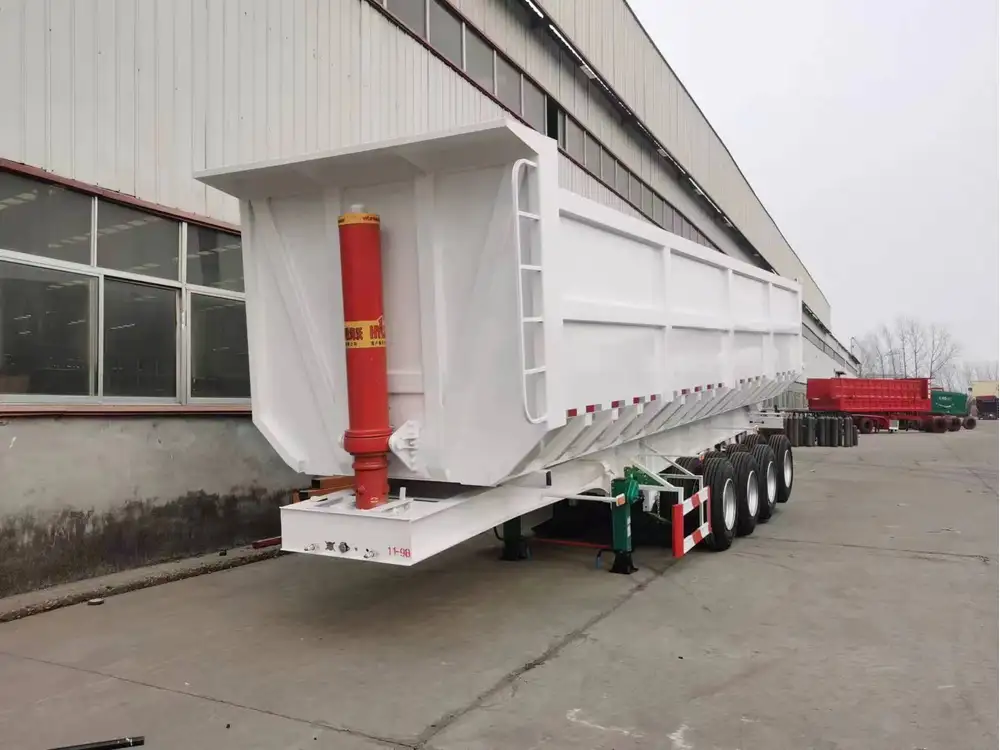
Branding and Aesthetics
Customizable exterior designs enable businesses to showcase their brand identity, enhancing visibility and recognition during transportation.
Sustainable Practices in Freezer Trailer Manufacturing
Embracing sustainability is integral to modern manufacturing, aligning with environmental conservation goals and customer expectations.
Eco-Friendly Materials
Utilizing recyclable and sustainable materials reduces the environmental footprint of freezer trailers without compromising quality.

Energy Conservation Measures
Implementing energy-efficient systems and optimizing power usage minimizes energy consumption, contributing to cost savings and sustainability.
Waste Reduction Strategies
Adopting lean manufacturing principles and minimizing material wastage during the production process enhances overall efficiency and environmental responsibility.
Maintenance and Longevity
Ensuring the longevity of freezer trailers involves proactive maintenance strategies and the use of durable components.

Regular Inspection Schedules
Establishing routine inspection schedules helps identify and address potential issues before they escalate, maintaining optimal performance.
Preventive Maintenance Practices
Implementing preventive measures, such as timely lubrication of moving parts and calibration of refrigeration systems, extends the trailer’s lifespan.
Replacement of Worn Components
Using high-quality replacement parts ensures that the freezer trailer remains reliable and efficient throughout its operational life.

Cost Considerations in Freezer Trailer Production
Balancing quality and cost is crucial in the manufacturing process to deliver value to clients without compromising on standards.
Material Costs
Selecting cost-effective yet durable materials optimizes production expenses while ensuring the trailer’s robustness.
Labor and Production Efficiency
Streamlining manufacturing processes and investing in skilled labor enhance production efficiency, reducing overall costs.
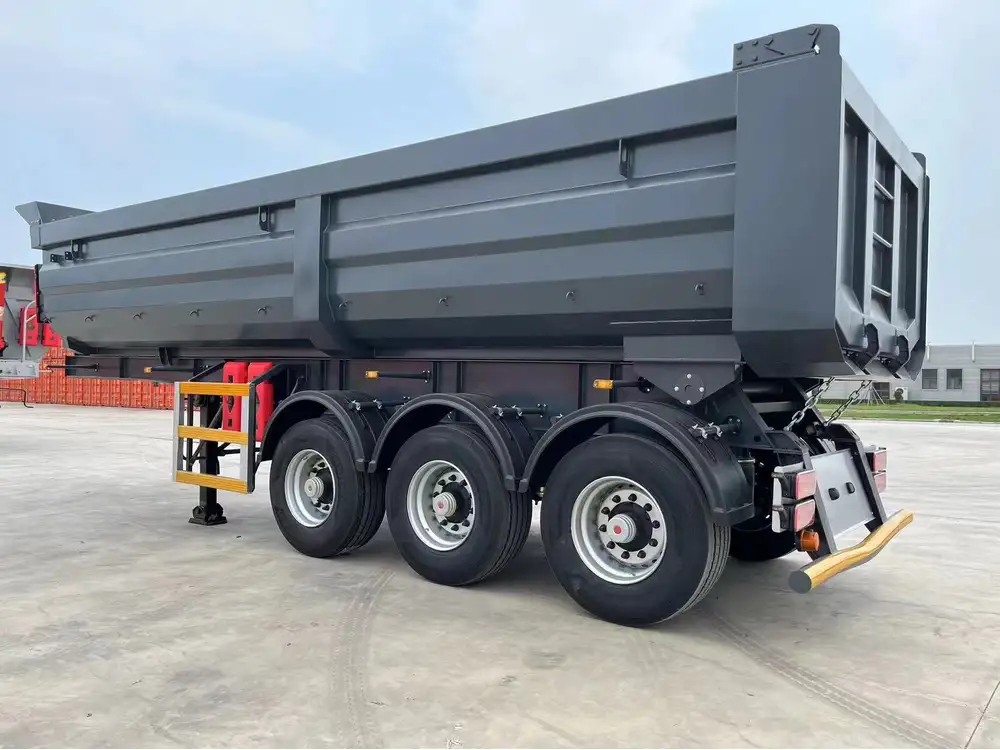
Long-Term Investment Analysis
Evaluating the long-term benefits of advanced features and sustainable practices justifies initial investments through extended trailer lifespan and reduced operational costs.
The CarMax Vehicle Advantage
Choosing CarMax Vehicle for your freezer trailer needs means partnering with a leader in innovation, quality, and customer satisfaction.
Expertise and Experience
With years of expertise in trailer manufacturing, we deliver products that meet the highest industry standards and client expectations.
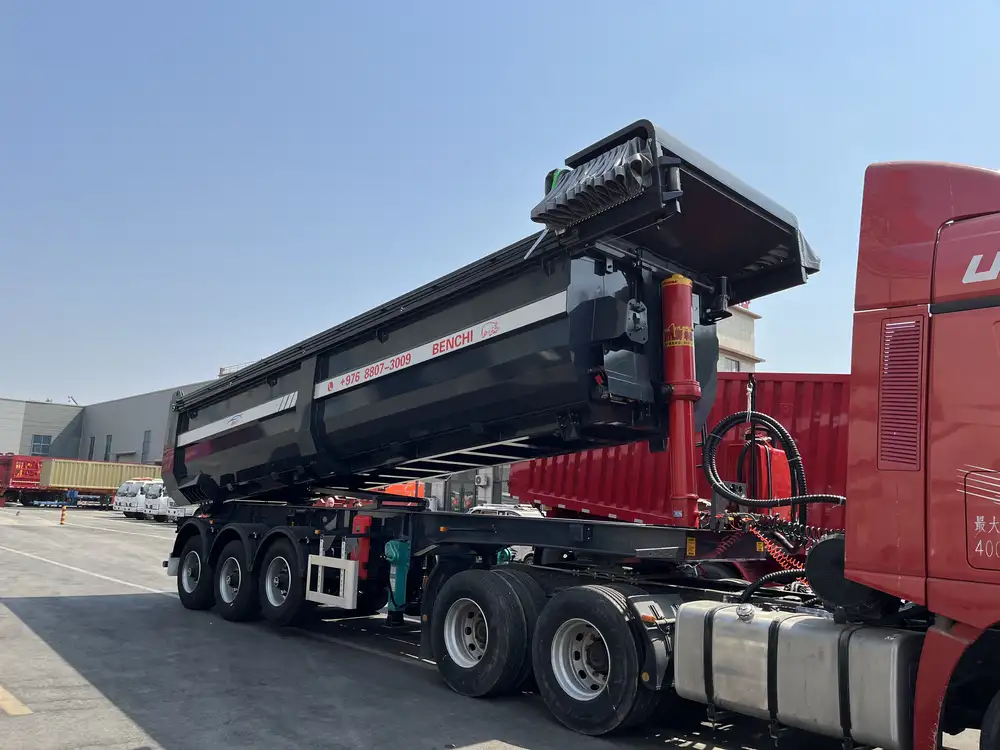
Custom Solutions
Our tailored solutions ensure that each freezer trailer is designed to address specific logistical challenges and operational requirements.
Commitment to Quality
We prioritize quality at every stage of production, from material selection to final testing, ensuring reliable and efficient freezer trailers.
Conclusion
Manufacturing a freezer trailer is a complex yet rewarding endeavor that demands precision, innovation, and a commitment to quality. At CarMax Vehicle, we leverage our expertise and advanced technologies to create freezer trailers that excel in performance, durability, and efficiency. Whether you require standard models or customized solutions, our team is dedicated to delivering trailers that meet your specific transportation needs.
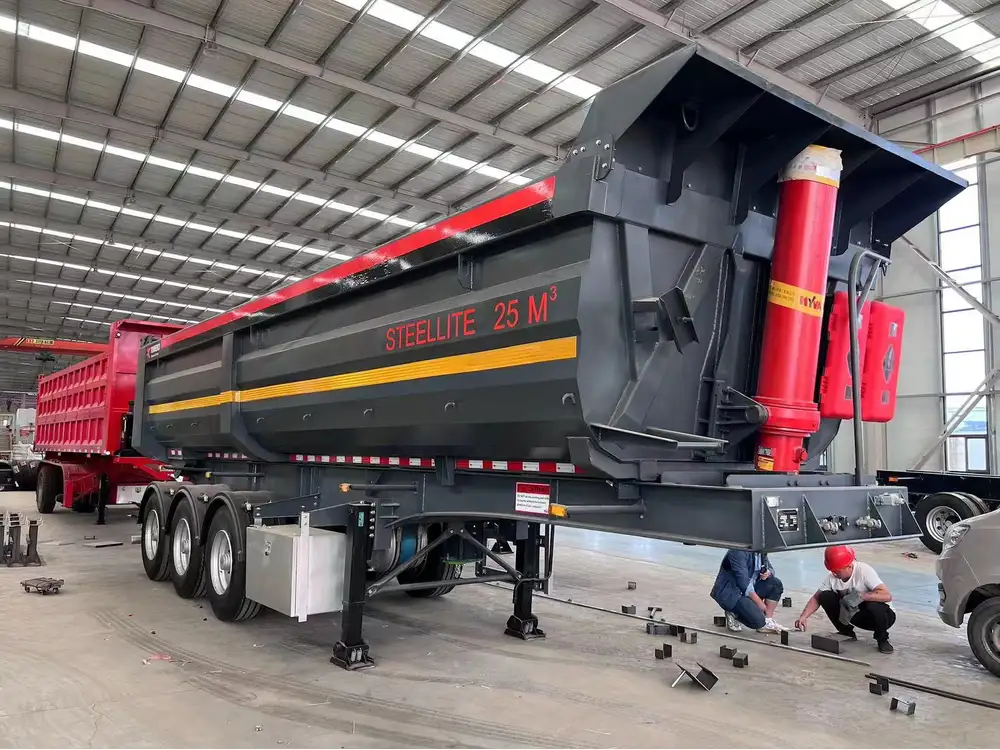
Frequently Asked Questions
1. What are the key considerations when designing a freezer trailer?
When designing a freezer trailer, key considerations include selecting appropriate insulation materials, ensuring efficient refrigeration systems, maintaining structural integrity, and incorporating energy-efficient technologies. Additionally, customization options to meet specific client needs and compliance with industry standards are essential.
2. How does insulation quality affect the performance of a freezer trailer?
Insulation quality directly impacts the trailer’s ability to maintain consistent internal temperatures. High-quality insulation reduces thermal bridging, minimizes temperature fluctuations, and enhances energy efficiency, ensuring the safe transportation of perishable goods.

3. What maintenance practices are recommended for freezer trailers?
Regular maintenance practices include routine inspections of the refrigeration unit, checking and sealing insulation gaps, lubricating moving parts, calibrating temperature controls, and replacing worn components promptly. Preventive maintenance helps sustain performance and extend the trailer’s lifespan.
4. Can freezer trailers be customized for different types of cargo?
Yes, freezer trailers can be customized with specialized compartments, varying sizes and capacities, and adjustable shelving to accommodate different types of perishable cargo. Customization ensures optimal storage conditions and efficient space utilization tailored to specific logistical requirements.
5. What are the advantages of choosing CarMax Trailer for manufacturing freezer trailers?
CarMax Trailer offers extensive expertise, innovative design solutions, and a commitment to quality. Our customizable freezer trailers are built with durable materials, advanced refrigeration systems, and sustainable practices, ensuring reliable performance and customer satisfaction.



